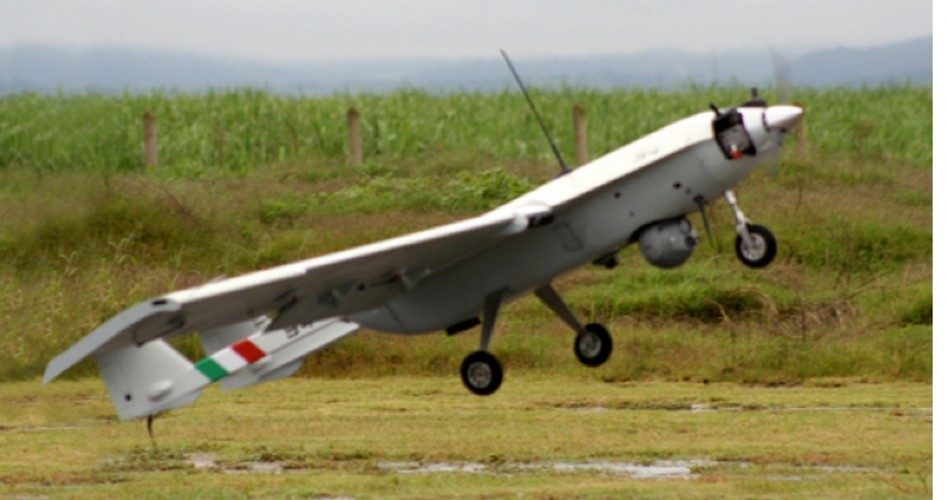
Last month, North Dakota became the first state to legalize the use of armed drones by police in what the United Kingdom’s Independent dubbed as a “classic case of unintended consequences.” The law’s failure to define specifically which weapons are permitted on the drones leaves room for potentially dangerous weapons to be allowed, fueling concerns about the increased militarization of America’s police.
The original legislation, introduced by Rick Becker, a Republican state representative in North Dakota, was intended to prohibit law enforcement from using drones to conduct surveillance without first obtaining a warrant.
Becker’s draft of House Bill 1328 said, “A state agency may not authorize the use of, including granting a permit to use, an unmanned aircraft armed with any lethal or non-lethal weapons, including firearms, pepper spray, bean bag guns, mace, and sound-based weapons.”
However, the state’s police union influenced an amendment to the bill, limiting the ban to only lethal weapons, meaning that sound cannons or rubber bullets could be used on police drones, according to The Daily Beast. Tasers and tear gas could also be permissible under the new law.
The change was made without Becker’s consent. He said at a hearing in March. “In my opinion there should be a nice, red line: Drones should not be weaponized. Period.”
As noted by USA Today, though the amendment intended to exclude lethal weapons, the potential for tasers to be added to the drones is troublesome, as they have resulted in the death of hundreds of people over the last decade.
Becker raised concerns at the general notion of police firing weapons on criminal suspects from afar. “When you’re not on the ground, and you’re making decisions, you’re sort of separate,” Becker said in March. “Depersonalized.”
Becker stated he did not block the amendments because he wanted to see the bill get passed, but claims that he intends to change it in two years when North Dakota’s House of Representatives returns to session. “I brought this issue up in 2013, asking for a prohibition on all (drone-based) weapons, and it was opposed by law enforcement. So when it came up again this year, I was told they wouldn’t oppose it if there was an amendment” about non-lethal force weapons, says Becker. “When it passed, we got most of what we wanted. Before it, there were only restrictions, no laws.”
Guy Haggard, an aviation attorney with GrayRobinson in Orlando, states that the legality of drone usage remains vague. “The issue with [North Dakota’s] bill is that the FAA currently prohibits dropping anything from an aircraft, and a drone is seen as an aircraft and firing a weapon is dropping an object,” he says. “So what happens when a drone that’s been weaponized accidentally goes off in a populated area? I think this moves into the FAA’s jurisdiction.”
The FAA does have a ban on civilian aircraft operations, but it is unclear whether a police-operated
drone would fall under that ban, admits FAA spokesman Les Dorr. “Law enforcement agency use of an unmanned aircraft would be considered a government aircraft operation, not a civil aircraft operation,” says Dorr. “A government aircraft operation needs FAA authorization in the form of a Certificate of Waiver or Authorization (COA). We can’t speculate if an operation involving a Taser-equipped unmanned aircraft would be approved.”
Meanwhile, Grand Forks County Sheriff Bob Rost complained that Becker’s bill was a bad one “to start with” because he needs the drones for surveillance in order to obtain a warrant.
He dismissed claims of privacy rights by asserting, “If you have nothing to hide, you have nothing to fear.”
But The Daily Beast astutely observed that the sheriff’s department seems to have something to hide, as it has been less than forthcoming regarding just how many drone missions they’ve flown since 2012.
Evidently, more than just the sheriff’s department had something to lose if Becker’s bill had been passed in its original format, including the North Dakota Department of Commerce and the founder of a drone company, as evidenced by their testimony against the bill. Likewise, the Association for Unmanned Vehicle Systems International vigilantly tracks drone legislation, particularly if it’s believed to limit drone “development,” according to Keith Lund of the Grand Forks Regional Economic Development Corporation.
When questioned by North Dakota Republican Gary Paur how a requirement for a search warrant for surveillance would “restrict development,” Lund gave this vague response: “It’s really all about the commercial development, which is where all of this is heading. If [a law] is somehow limiting commercial, law enforcement development … that is a negative in terms of companies looking and investing in opportunities in the state of North Dakota.”
The Daily Beast observed, “In other words, limit civil liberties so Big Drone can spread its wings.”
The Supreme Court has not yet decided whether police must obtain a warrant before using drones, and a casual glance over Supreme Court rulings regarding similar questions reveals a mixed bag. In both California v. Ciraolo and Florida v. Riley, for example, the high court ultimately held that manned aircrafts do not require warrants. According to the Northwestern University Law Journal, both decisions relied heavily on FAA safety regulations to determine whether an expectation of privacy was reasonable, setting a dangerous precedent for government abuse of drone surveillance.
But in Kyllo v. United States, the court held that the police need a warrant to use a thermal imaging device that measures the temperature of the roof of a house to detect the growing of marijuana inside because the person has a “subjective expectation of privacy” inside their home.
The Constitution alone should be enough to protect Americans from illegal searches, but has unfortunately been long overlooked.
Representative Becker warned, “We just need to be aware of these issues, because drone technology is here to stay and we need to support our civil liberties.”
Unfortunately for the people of North Dakota, 2017 could be the earliest that they see their civil liberties restored.




